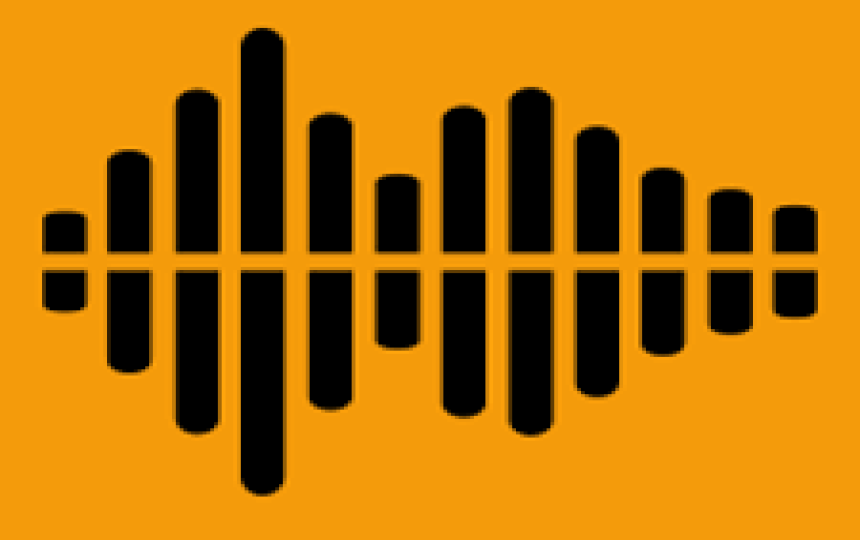
NFT Music Platforms: A Deep Dive into the Future of Decentralized Sound
Click here to hear the audio file.
In the symphony of technological evolution, the intersection of Non-Fungible Tokens (NFTs) and the music industry has struck a resonant chord, giving rise to a new era of decentralized sound. NFT music platforms, born from the principles of Web3, are rewriting the rules of music distribution, ownership, and engagement. In this deep dive, we explore the dynamic landscape of NFT music platforms and the transformative impact they hold for artists, collectors, and music enthusiasts alike.
The Essence of NFTs in Music:
NFTs, or Non-Fungible Tokens, represent unique and irreplaceable assets on the blockchain. In the world of music, these tokens encapsulate tracks, albums, and moments in an artist's journey, providing a digital certificate of ownership.
Ownership Redefined:
- NFT music platforms offer a revolutionary shift in ownership dynamics. Fans can own a piece of their favorite artist's work in a digital format, fostering a deeper connection and sense of patronage.
Monetization Empowered:
- For musicians, NFTs provide an additional revenue stream. By tokenizing their music, artists can sell limited editions, exclusive releases, or even unlockable content, creating new opportunities for monetization.
Direct-to-Fan Engagement:
- NFT music platforms facilitate direct interaction between artists and fans. Through exclusive drops, personalized messages, and unique experiences, artists can cultivate a dedicated community around their work.
Leading NFT Music Platforms:
Audius:
- Audius is a decentralized music streaming platform that leverages blockchain technology to ensure fair compensation for artists. It allows them to mint their tracks as NFTs, granting ownership rights to fans.
Mattereum:
- Mattereum focuses on tokenizing physical and digital assets, including music. Artists can tokenize their albums, offering fans a new way to own and trade their favorite tunes.
Rarible:
- While known for its general NFT marketplace, Rarible has become a hub for musicians to mint and sell music NFTs directly to their audience.
Mintbase:
- Mintbase enables artists to create their own branded NFT marketplaces. Musicians can tokenize their music and merchandise, fostering a unique and immersive fan experience.
Challenges and Opportunities:
Environmental Concerns:
- The environmental impact of blockchain technology, often associated with NFTs, is a challenge that the industry is actively addressing. Sustainable practices and eco-friendly blockchain solutions are gaining traction.
Educational Hurdles:
- Understanding the intricacies of NFTs and blockchain technology can be a barrier for both artists and fans. Increased education and user-friendly platforms are crucial for wider adoption.
The Road Ahead:
As NFT music platforms continue to reshape the music industry, the road ahead is filled with promise and potential. The decentralized sound ecosystem empowers artists, engages fans, and opens avenues for collaboration and creativity previously unexplored.
The future of music is not just heard; it's owned, shared, and celebrated in the decentralized symphony of NFTs. As we navigate this transformative landscape, one thing is clear: the melody of decentralized sound is composing a future where every note, every beat, and every token holds a story, waiting to be played. Welcome to the decentralized future of music, where ownership is digital, engagement is direct, and the possibilities are endless. 🎶🌐
NFT Music Platforms: A Deep Dive into the Future of Decentralized Sound
In the symphony of technological evolution, the intersection of Non-Fungible Tokens (NFTs) and the music industry has struck a resonant chord, giving rise to a new era of decentralized sound. NFT music platforms, born from the principles of Web3, are rewriting the rules of music distribution, ownership, and engagement. In this deep dive, we explore the dynamic landscape of NFT music platforms and the transformative impact they hold for artists, collectors, and music enthusiasts alike.
The Essence of NFTs in Music:
NFTs, or Non-Fungible Tokens, represent unique and irreplaceable assets on the blockchain. In the world of music, these tokens encapsulate tracks, albums, and moments in an artist's journey, providing a digital certificate of ownership.
Ownership Redefined:
- NFT music platforms offer a revolutionary shift in ownership dynamics. Fans can own a piece of their favorite artist's work in a digital format, fostering a deeper connection and sense of patronage.
Monetization Empowered:
- For musicians, NFTs provide an additional revenue stream. By tokenizing their music, artists can sell limited editions, exclusive releases, or even unlockable content, creating new opportunities for monetization.
Direct-to-Fan Engagement:
- NFT music platforms facilitate direct interaction between artists and fans. Through exclusive drops, personalized messages, and unique experiences, artists can cultivate a dedicated community around their work.
Leading NFT Music Platforms:
Audius:
- Audius is a decentralized music streaming platform that leverages blockchain technology to ensure fair compensation for artists. It allows them to mint their tracks as NFTs, granting ownership rights to fans.
Mattereum:
- Mattereum focuses on tokenizing physical and digital assets, including music. Artists can tokenize their albums, offering fans a new way to own and trade their favorite tunes.
Rarible:
- While known for its general NFT marketplace, Rarible has become a hub for musicians to mint and sell music NFTs directly to their audience.
Mintbase:
- Mintbase enables artists to create their own branded NFT marketplaces. Musicians can tokenize their music and merchandise, fostering a unique and immersive fan experience.
Challenges and Opportunities:
Environmental Concerns:
- The environmental impact of blockchain technology, often associated with NFTs, is a challenge that the industry is actively addressing. Sustainable practices and eco-friendly blockchain solutions are gaining traction.
Educational Hurdles:
- Understanding the intricacies of NFTs and blockchain technology can be a barrier for both artists and fans. Increased education and user-friendly platforms are crucial for wider adoption.
The Road Ahead:
As NFT music platforms continue to reshape the music industry, the road ahead is filled with promise and potential. The decentralized sound ecosystem empowers artists, engages fans, and opens avenues for collaboration and creativity previously unexplored.
The future of music is not just heard; it's owned, shared, and celebrated in the decentralized symphony of NFTs. As we navigate this transformative landscape, one thing is clear: the melody of decentralized sound is composing a future where every note, every beat, and every token holds a story, waiting to be played. Welcome to the decentralized future of music, where ownership is digital, engagement is direct, and the possibilities are endless. 🎶🌐




